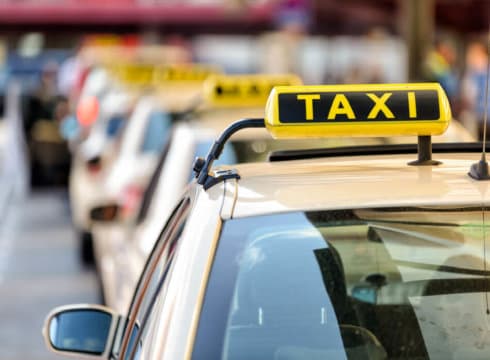Earlier, Meru Cabs Enables Its Drivers To Set Dynamic Fare In a Bid To Attract Customers
Inc42 Daily Brief
Stay Ahead With Daily News & Analysis on India’s Tech & Startup Economy
After adopting marketplace model, homegrown cab service provider Meru Cabs is now looking to focus on B2B clients to address its falling revenues with Ola and Uber taking the lead in the B2C cab hailing market.
According to the reports, Meru Cabs is planning to double its B2B offerings and offer corporate employee transportation, car rentals and airport contracts.
Neeraj Gupta, founder of Meru Cabs, told ET, “The best viable option for us is to focus on B2B. We are looking at a three-year time frame where the model will shift from a B2C business to a B2B business. Eventually, it will keep on growing much faster than B2C for us.”
Over the next three years, the company is looking to earn 70-75% of its revenues from B2B model, from the present 40-45%.
Also, to address cost efficiencies, Meru is working to increase its fleet four times to about 20K over the next five years for its B2B model and also serve its B2C customers.
The company last raised funding in June 2016 when Brand Capital, the investment arm of Bennett, Coleman and Co. Ltd (BCCL), invested $25 Mn (INR 150 Cr) in Meru Cabs. Prior to that, in May 2015, Meru Cabs raised $50 Mn (INR 300 Cr) from India Value Fund Advisors (IVFA).
The company had recently revived itself through marketplace model and enabled its enrolled drivers to set dynamic fares in a bid to attract more customers.
Earlier in September 2016, it launched an accurate fare calculator called ‘Fare Exactometer’. Using this feature in the Meru Cabs app, exact fares were confirmed at the time of booking the cab. The total fare was equal to or lower than the fares prescribed by State Transport Authority, for the respective travel route and time.
Ola, Uber Face Off With Drivers
The major players in the space, Ola and Uber have been strengthening their foothold in the space, but at the same time facing the ire of their driver fleet as well.
In March, both the companies faced troubles from their drivers over their revenues, during which a clutch of drivers were arrested by Mumbai Police as they did not have the requisite permissions to conduct the protest.
To call off the strike, Ola said the company will look into the issues within 15 to 20 days as per the company policy, and also requested for details of cab drivers which claimed that company had terminated their agreements.
Recently, Ola also realised its international expansion plans as its services became operational in Sydney, while a pilot project continues in Perth. Uber has been continuously trying to gain a strong foothold in the country, and as part of that Uber CEO Dara Khosrowshahi recently visited India and reiterated company’s commitment to India.
Meru Cabs, Private Taxi Operators In Tussle With Ola, Uber
In October 2017, Meru Cabs filed complaints against competitors, Ola and Uber, alleging that the cab aggregators were misusing investor funds to artificially enhance their dominance in four major cities across India. This, as per the complainant, was distorting the market, thus affecting the growth of other companies in the space.
Prior to this, in December 2015, the company issued complaints against Uber, alleging that global ride-sharing startup was following predatory pricing to increase its market share. In its complaint with the CCI, Meru had filed charges on Uber that it was charging very low rates for its services, while the average market price of radio taxis in Kolkata before Uber entered the market was about $0.30 – $0.33 (INR 20-INR 22) per km.
As per data from the consulting firm Redseer, the gross booking value of companies in the local ride-sharing space increased to $2.1 Bn in 2017 from $1.5 Bn in the year before. The Indian online mobility market, which encompasses cab aggregator and auto hailing segments, contributed over 15% of the industry’s overall gross book value (GBV) in 2017.
In the cab-hailing market, mostly dominated by Ola and Uber, it is to be seen whether focusing on B2B business can make Meru Cabs sustain its position in the Indian cab hailing market in long-term
{{#name}}{{name}}{{/name}}{{^name}}-{{/name}}
{{#description}}{{description}}...{{/description}}{{^description}}-{{/description}}
Note: We at Inc42 take our ethics very seriously. More information about it can be found here.


